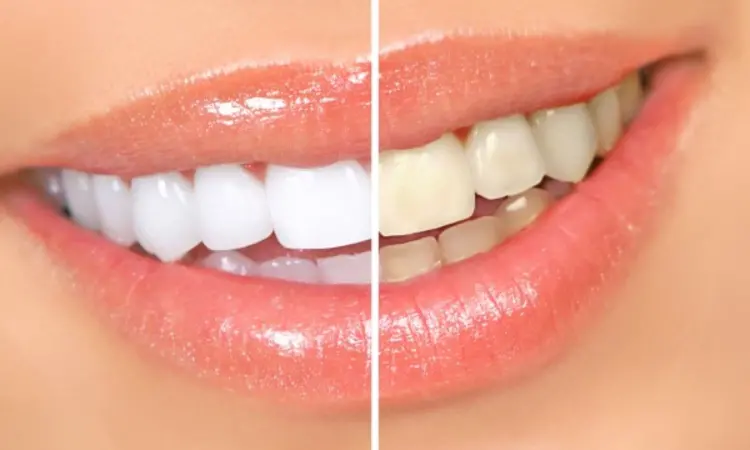- Home
- Medical news & Guidelines
- Anesthesiology
- Cardiology and CTVS
- Critical Care
- Dentistry
- Dermatology
- Diabetes and Endocrinology
- ENT
- Gastroenterology
- Medicine
- Nephrology
- Neurology
- Obstretics-Gynaecology
- Oncology
- Ophthalmology
- Orthopaedics
- Pediatrics-Neonatology
- Psychiatry
- Pulmonology
- Radiology
- Surgery
- Urology
- Laboratory Medicine
- Diet
- Nursing
- Paramedical
- Physiotherapy
- Health news
- Fact Check
- Bone Health Fact Check
- Brain Health Fact Check
- Cancer Related Fact Check
- Child Care Fact Check
- Dental and oral health fact check
- Diabetes and metabolic health fact check
- Diet and Nutrition Fact Check
- Eye and ENT Care Fact Check
- Fitness fact check
- Gut health fact check
- Heart health fact check
- Kidney health fact check
- Medical education fact check
- Men's health fact check
- Respiratory fact check
- Skin and hair care fact check
- Vaccine and Immunization fact check
- Women's health fact check
- AYUSH
- State News
- Andaman and Nicobar Islands
- Andhra Pradesh
- Arunachal Pradesh
- Assam
- Bihar
- Chandigarh
- Chattisgarh
- Dadra and Nagar Haveli
- Daman and Diu
- Delhi
- Goa
- Gujarat
- Haryana
- Himachal Pradesh
- Jammu & Kashmir
- Jharkhand
- Karnataka
- Kerala
- Ladakh
- Lakshadweep
- Madhya Pradesh
- Maharashtra
- Manipur
- Meghalaya
- Mizoram
- Nagaland
- Odisha
- Puducherry
- Punjab
- Rajasthan
- Sikkim
- Tamil Nadu
- Telangana
- Tripura
- Uttar Pradesh
- Uttrakhand
- West Bengal
- Medical Education
- Industry
Incorporating ibuprofen/arginine gel in bleaching protocols reduces risk and intensity of tooth sensitivity: Study

Brazil: The use of experimental desensitizing gel containing arginine and ibuprofen effectively lowers the risk and intensity of tooth sensitivity (TS) without compromising the bleaching efficacy, a recent randomized, triple-blind controlled trial published in the Journal of Dentistry has revealed.
"Clinicians may consider incorporation of desensitizing agents, such as the ibuprofen/arginine gel, into their bleaching protocols to enhance patient comfort and satisfaction," the researchers suggest.
Tooth bleaching is one of the most common cosmetic procedures patients seek due to dissatisfaction with colour and tooth appearance. Despite the success of dental bleaching procedures, adverse effects such as bleaching-induced tooth sensitivity (TS) and gingival irritation are commonly observed. Among these, bleaching-induced TS is the most prevalent.
The application of anti-inflammatories as topical desensitizers before dental bleaching is an approach to lower bleaching-induced tooth sensitivity. Giovana Mongruel Gomes, University of Ponta Grossa Ponta Grossa, Paraná, Brazil, and colleagues compared the intensity and risk of TS and the colour change resulting from in-office dental bleaching after using an experimental desensitizing gel containing arginine and ibuprofen.
The trial included sixty-two participants with upper canine shades A2 or darker. They were randomly assigned to either the ibuprofen-arginine desensitizing group or the placebo group. The desensitizing gel was applied for 15 min before in-office bleaching with 35 % hydrogen peroxide gel for 50 min (2 sessions).
The researchers used visual (0–10) and numeric rating (0–5) scales to assess the absolute risk and intensity of TSt, and group comparisons were made using the Wilcoxon test, McNemar test, and paired Student t-test. The colour change was assessed using Vita Bleachedguide (ΔSGU), Vita Classical, and Vita EasyShade (ΔEab, ΔE00, and ΔWID) before and one month after the bleaching procedure. A paired t-test was used to perform group comparisons for colour change.
The study led to the following findings:
- The odds ratio for TS was 0.14, meaning lower odds of TS for the desensitizing gel.
- A lower intensity of TS was also observed for the experimental group up to 48 h after bleaching.
- All colour evaluation tools demonstrated effective and similar whitening for both groups.
The findings showed that the topical application of ibuprofen in combination with arginine has demonstrated the ability to reduce the intensity and risk of tooth sensitivity while preserving the efficacy of the bleaching process.
"The topical application of ibuprofen/arginine on the in-office bleaching reduced risk and intensity of bleaching-induced tooth sensitivity," the researchers wrote.
Reference:
Hortkoff, D., Da Silva, K. L., Farago, P. V., Gomes, J. C., Reis, A., & Gomes, G. M. (2024). Effect of topical application of ibuprofen/arginine on the in-office bleaching-induced tooth sensitivity: A randomized, triple-blind controlled trial. Journal of Dentistry, 142, 104875. https://doi.org/10.1016/j.jdent.2024.104875
Dr Kamal Kant Kohli-MBBS, DTCD- a chest specialist with more than 30 years of practice and a flair for writing clinical articles, Dr Kamal Kant Kohli joined Medical Dialogues as a Chief Editor of Medical News. Besides writing articles, as an editor, he proofreads and verifies all the medical content published on Medical Dialogues including those coming from journals, studies,medical conferences,guidelines etc. Email: drkohli@medicaldialogues.in. Contact no. 011-43720751


